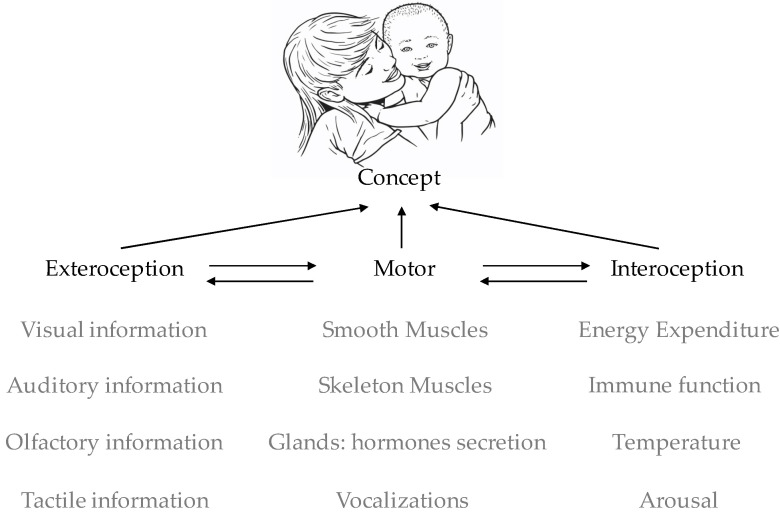Figure 2.
Basic ingredients of learning favor social development. During development, infants organize sensory-motor information into concepts. Information includes the exteroceptive perception of the environment, interoceptive perception of the body, execution of motor control over behavior (skeleton muscles), and visceromotor control of the internal milieu via the autonomic and endocrine systems (contraction of smooth muscles, hormonal secretion from glands). Two domain-general processes that impact learning are statistical learning of the environment [109,110,111] and motivated learning guided by allostatic demands [93]. In social animals, the environment is primarily social, and allostasis is regulated primarily via social interactions. Therefore, the first and most prominent learning humans do is social. Accordingly, a deficiency in multi-modal integration of the basic ingredients that determine the ability to learn concepts, including perception, motor control, and allostasis regulation, results in atypical social development.

